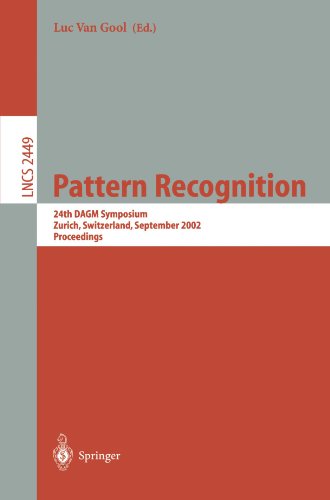

Most ebook files are in PDF format, so you can easily read them using various software such as Foxit Reader or directly on the Google Chrome browser.
Some ebook files are released by publishers in other formats such as .awz, .mobi, .epub, .fb2, etc. You may need to install specific software to read these formats on mobile/PC, such as Calibre.
Please read the tutorial at this link: https://ebookbell.com/faq
We offer FREE conversion to the popular formats you request; however, this may take some time. Therefore, right after payment, please email us, and we will try to provide the service as quickly as possible.
For some exceptional file formats or broken links (if any), please refrain from opening any disputes. Instead, email us first, and we will try to assist within a maximum of 6 hours.
EbookBell Team

5.0
80 reviewsWe are proud to present the DAGM 2002 proceedings, which are the result of the e?orts of many people. First, there are the many authors, who have submitted so many excellent cont- butions. We received more than 140 papers, of which we could only accept about half in order not to overload the program. Only about one in seven submitted papers could be delivered as an oral presentation, for the same reason. But it needs to be said that almost all submissions were of a really high quality. This strong program could not have been put together without the support of the Program Committee. They took their responsibility most seriously and we are very grateful for their reviewing work, which certainly took more time than anticipated, given the larger than usual number of submissions. Our three invited speakers added a strong multidisciplinary component to the conference. Dr. Antonio Criminisi of Microsoft Research (Redmond, USA) dem- strated how computer vision can literally bring a new dimension to the app- ciation of art. Prof. Philippe Schyns (Dept. of Psychology, Univ. of Glasgow, UK) presented intriguing insights into the human perception of patterns, e.g., the role of scale. Complementary to this presentation, Prof. Manabu Tanifuji of the Brain Science Institute in Japan (Riken) discussed novel neurophysiological ?ndings on how the brain deals with the recognition of objects and their parts.